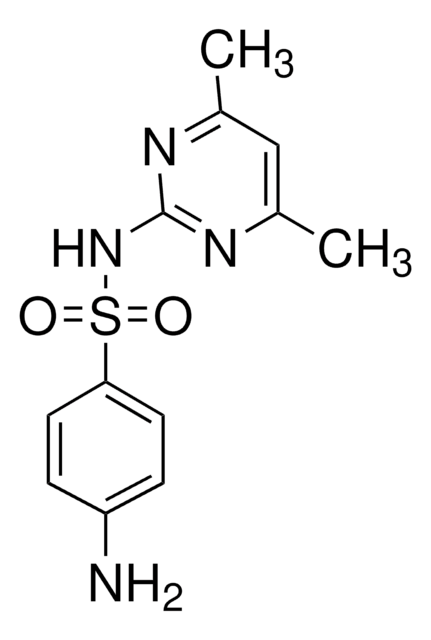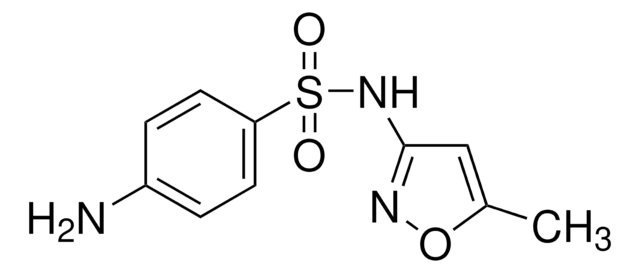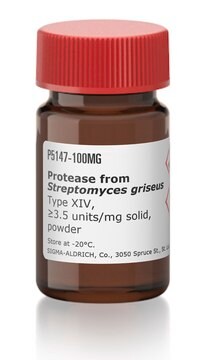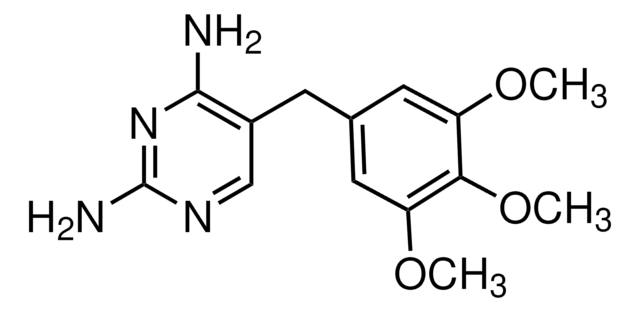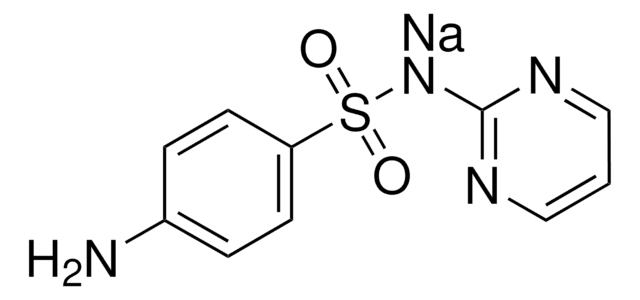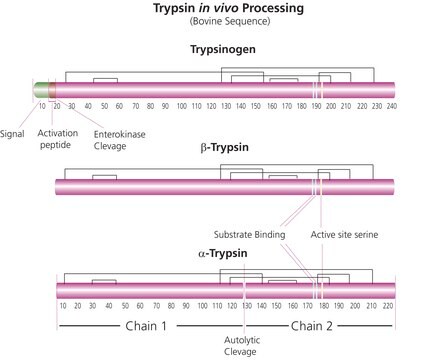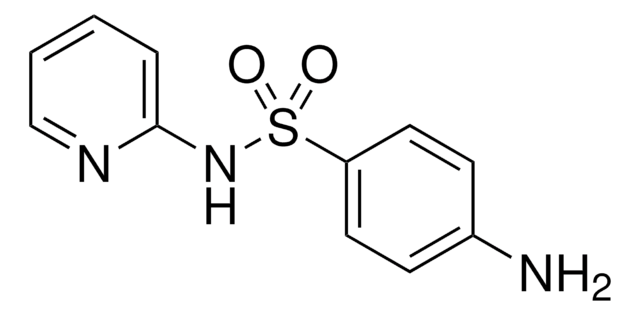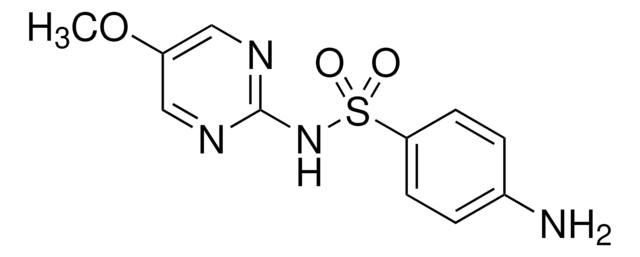S8626
Sulfadiazine
99.0-101.0%
Sinónimos:
4-Amino-N-(2-pyrimidinyl)benzenesulfonamide, N1-(Pyrimidin-2-yl)sulfanilamide
About This Item
Productos recomendados
descripción
Solubility - Practically insoluble in water, slightly soluble in acetone, very slightly soluble in ethanol (96 per cent). It dissolves in solutions of alkali hydroxides and in dilute mineral acids.
Nivel de calidad
Ensayo
99.0-101.0%
Formulario
powder or crystals
color
white to faint yellow, faint pink
mp
253 °C (dec.) (lit.)
solubilidad
96% ethanol: very slightly soluble
acetone: slightly soluble
water: practically insoluble
espectro de actividad antibiótica
Gram-negative bacteria
Gram-positive bacteria
mycoplasma
Modo de acción
DNA synthesis | interferes
enzyme | inhibits
cadena SMILES
Nc1ccc(cc1)S(=O)(=O)Nc2ncccn2
InChI
1S/C10H10N4O2S/c11-8-2-4-9(5-3-8)17(15,16)14-10-12-6-1-7-13-10/h1-7H,11H2,(H,12,13,14)
Clave InChI
SEEPANYCNGTZFQ-UHFFFAOYSA-N
¿Está buscando productos similares? Visita Guía de comparación de productos
Categorías relacionadas
Descripción general
Aplicación
Acciones bioquímicas o fisiológicas
Otras notas
Palabra de señalización
Warning
Frases de peligro
Consejos de prudencia
Clasificaciones de peligro
Acute Tox. 4 Oral - Aquatic Chronic 2 - Repr. 2
Código de clase de almacenamiento
11 - Combustible Solids
Clase de riesgo para el agua (WGK)
WGK 2
Equipo de protección personal
dust mask type N95 (US), Eyeshields, Faceshields, Gloves
Elija entre una de las versiones más recientes:
¿Ya tiene este producto?
Encuentre la documentación para los productos que ha comprado recientemente en la Biblioteca de documentos.
Los clientes también vieron
Nuestro equipo de científicos tiene experiencia en todas las áreas de investigación: Ciencias de la vida, Ciencia de los materiales, Síntesis química, Cromatografía, Analítica y muchas otras.
Póngase en contacto con el Servicio técnico